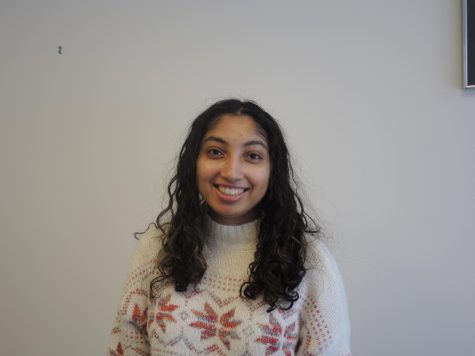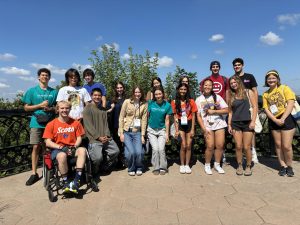Dr. Risam gives presentation on digital humanities

March 10, 2022
On March 3, Dr. Roopika Risam, chair of secondary and higher education and associate professor of education and English at Salem State University, joined the Macalester community for a Q&A session over Zoom about her work surrounding the intersections of digital humanities and postcolonial ethnic studies. The event was sponsored by the Andrew W. Mellon Foundation’s Making Meaning grant.
Risam described how her engagement with digital humanities research began during her time at Georgetown University and Emory University. She began to explore how Black radical thought both traveled throughout and affected the postcolonial world.
“It occurred to me that digital humanities was so focused on canonical white writers and thinkers and historical figures,” Risam said. “What would it mean to really bring a post-colonial and anti-racist critique to that?”
Risam described the unionization process that occurred at Salem State University in order to make sure that a scholarship for the teaching of the digital humanities was adequately valued. According to Risam, university chairs and deans did not know how to analyze scholarly materials that existed outside of solely printed works.
Relating to this topic, media and cultural studies professor John Kim brought up the idea of changing the language in Macalester’s faculty handbook with the intended goal of making it more inclusive. The handbook as it stands tends to focus on books and articles that are peer-reviewed as the gold standard for academic scholarship. However, an adjustment to more open-ended language surrounding academic scholarship would allow for more resources relating to the digital humanities to be included.
Risam also discussed her upcoming book project, titled “Insurgent Academics: A Radical Account of Public Humanities.” She cited the importance of people with marginalized and intersecting identities furthering research in postcolonial ethnic studies and acknowledged that traditionally marginalized scholars have already been doing this for a while.
“This work [is] starting to happen now, [but] Black scholars [and] Indigenous scholars have addressed this for a hundred years,” Risam said.
Risam also offered some insights from her work managing the Digital Ethnic Futures Consortium, a project funded by the Mellon Foundation, due to Macalester having recently been awarded major Mellon grants to fund various projects. She emphasized the importance of a scholar’s relationship with the communities around them, and how the scholar themself ought to prioritize and center the needs of the community partners.
“I very much think about research as collaborative teams where everybody’s bringing what they know and learning about what they don’t know or learning a little bit about what they don’t know,” Risam said. “Everybody’s expertise is necessary and essential to making a project function.”
Risam then spent some time discussing her work in implementing digital humanities curricula into schools. She posed a question to the audience of primarily Macalester faculty and staff about what the biggest challenges at Macalester are in relation to the implementation of digital and public humanities.
Director of the Digital Liberal Arts and discussion moderator professor Aisling Quigley brought up the challenge of offering more interdisciplinary courses due to the limited selection in the course catalog. Various attending faculty members also expressed that although Macalester is a small school, one big struggle lies in communicating with one another.
In response to a question about where the Macalester community could possibly source the capacity for digital humanities projects from, Risam highlighted the importance of working together and utilizing one another’s interpersonal connections. She explained that both Macalester and other universities are at different stages in regards to the study of digital humanities, but they are all broadly committed to the intersection of the digital sphere and the discipline of the humanities.
“It’s about access to information that people don’t have, and it’s about voices who don’t get represented in the canon and how can we maybe try and think about taking advantage of the digital space as a place to do that,” Risam said.












